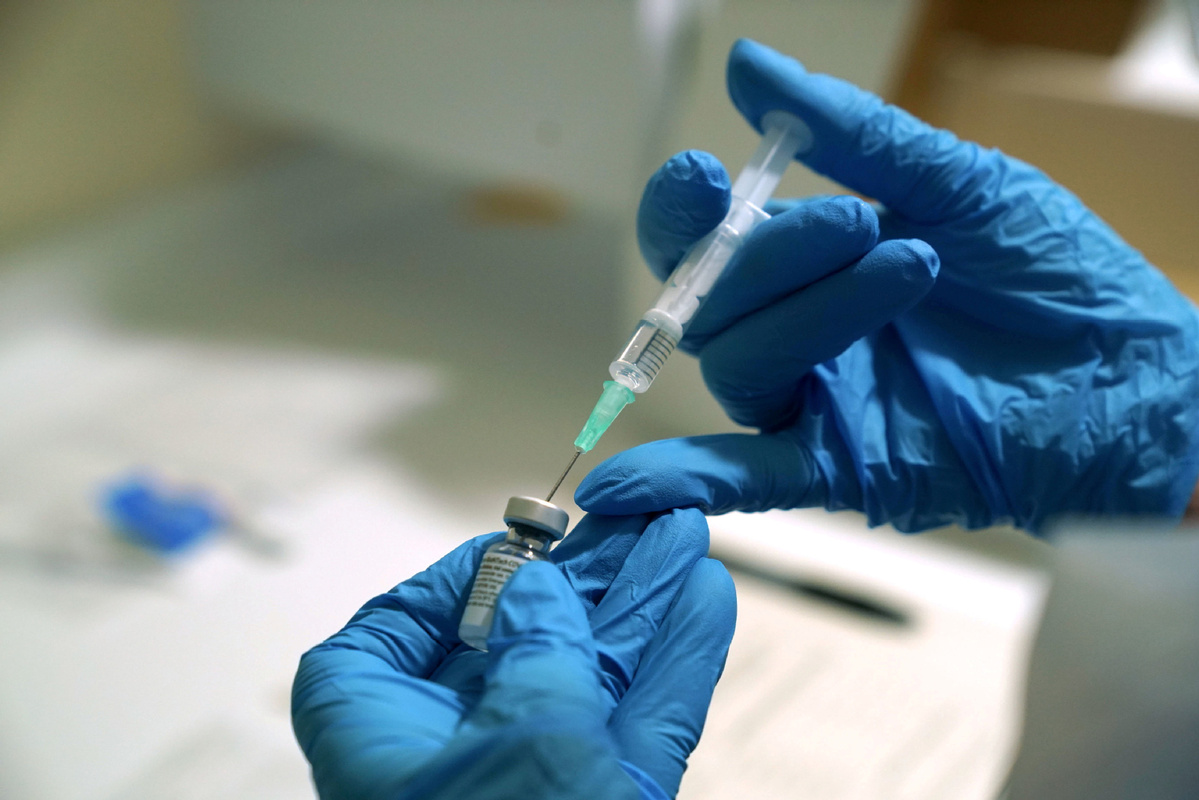People warned about jab allergy risk


People with a history of significant allergic reactions have been advised not to receive the Pfizer BioNTech COVID-19 vaccine, after two of the initial recipients of the first roll-out in the United Kingdom suffered adverse reactions.
Stephen Powis, national medical director for the National Health Service in England, said both people, members of staff from the NHS with a known history of allergic reaction, were recovering well, but as was standard for new vaccines, the Medicines and Healthcare products Regulatory Agency, or MHRA, was advising caution.
MHRA chief June Raine called the anaphylaxis reaction, which is sudden and severe, a "known … very rare side effect with any vaccine" and said that leading allergy experts had already been consulted over the issue.
"Any person with a history of anaphylaxis to a vaccine, medicine or food should not receive the Pfizer BioNTech vaccine," she said. "A second dose should not be given to anyone who has experienced anaphylaxis following administration of the first dose of this vaccine.
"Most people will not get anaphylaxis and the benefits in protecting people against COVID-19 outweigh the risks."
Earlier this week, the UK became the first country to approve and deploy the vaccine, amid huge publicity, with the elderly and key medical workers among the first to receive it.
Trials for the drug involved more than 18,000 volunteers, with only a very low level of allergic reaction, but it is thought that those with a known history of allergic reaction to the ingredients were not involved in it.
"Allergic reaction occurs with quite a number of vaccines, and perhaps even more frequently with drugs, so it is not unexpected," Stephen Evans, a professor at the London School of Hygiene and Topical Medicine, told ITV.
Peter Openshaw, professor of experimental medicine at Imperial College London, which has been at the forefront of Covid research, said it was important to "put the risk in perspective".
"The occurrence of any allergic reaction was one of the factors monitored in the phase three clinical trial of this Pfizer/BioNTech COVID-19 vaccine… in (the trial report data) they reported a very small number of allergic reactions in both the vaccine and placebo groups (0.63 per cent and 0.51 per cent)," he said.
"The fact that we know so soon about these two allergic reactions and that the regulator has acted on this to issue precautionary advice shows that this monitoring system is working well."
Meanwhile, the Confederation of British Industry, or CBI, has warned it will take until the end of 2022 for the British economy to return to its pre-COVID-19 size, with unemployment rising in the new year, and the prospect of a no-deal Brexit adding to the economic burden.
The business group has estimated the virus will result in the economy suffering a record 11.1 percent shrinkage in 2020, with 6 percent growth in 2021, and 5.2 percent in 2022.
"We simply must find new ways to get businesses investing at the start of 2021 if we are to fast-forward the recovery," said CBI director-general, Tony Danker.
He said the government needed "to demonstrate the same agility and resource allocation as they did with the COVID-19" when dealing with the consequences of a no-deal Brexit, which, even if alleviated, would result in the economy being 1 percent smaller at the end of the next two years.
Newly-released figures show that the economy grew by 0.4 percent in October, a sixth consecutive month of growth, but slowing down, and still doing little to repair the damage of a record 19.5 percent slump in April, when the first lockdown was imposed.
Lockdown came back in November, and has only recently been partially lifted, so when they are released, figures for that month are likely to halt the trend of recovery.
Suren Thiru, head of economics at the British Chambers of Commerce, echoed the CBI's warning about a no-deal Brexit coming on top of the impact of the pandemic.
"While a vaccine offers real hope, failure to avoid a disorderly end to the (Brexit) transition period or further lockdown restrictions before a mass vaccine rollout is achieved would severely drag on any economic recovery," he told the BBC.
Overall, the UK economy is on course for a contraction of 11.3 percent this year, the biggest in 300 years.

































